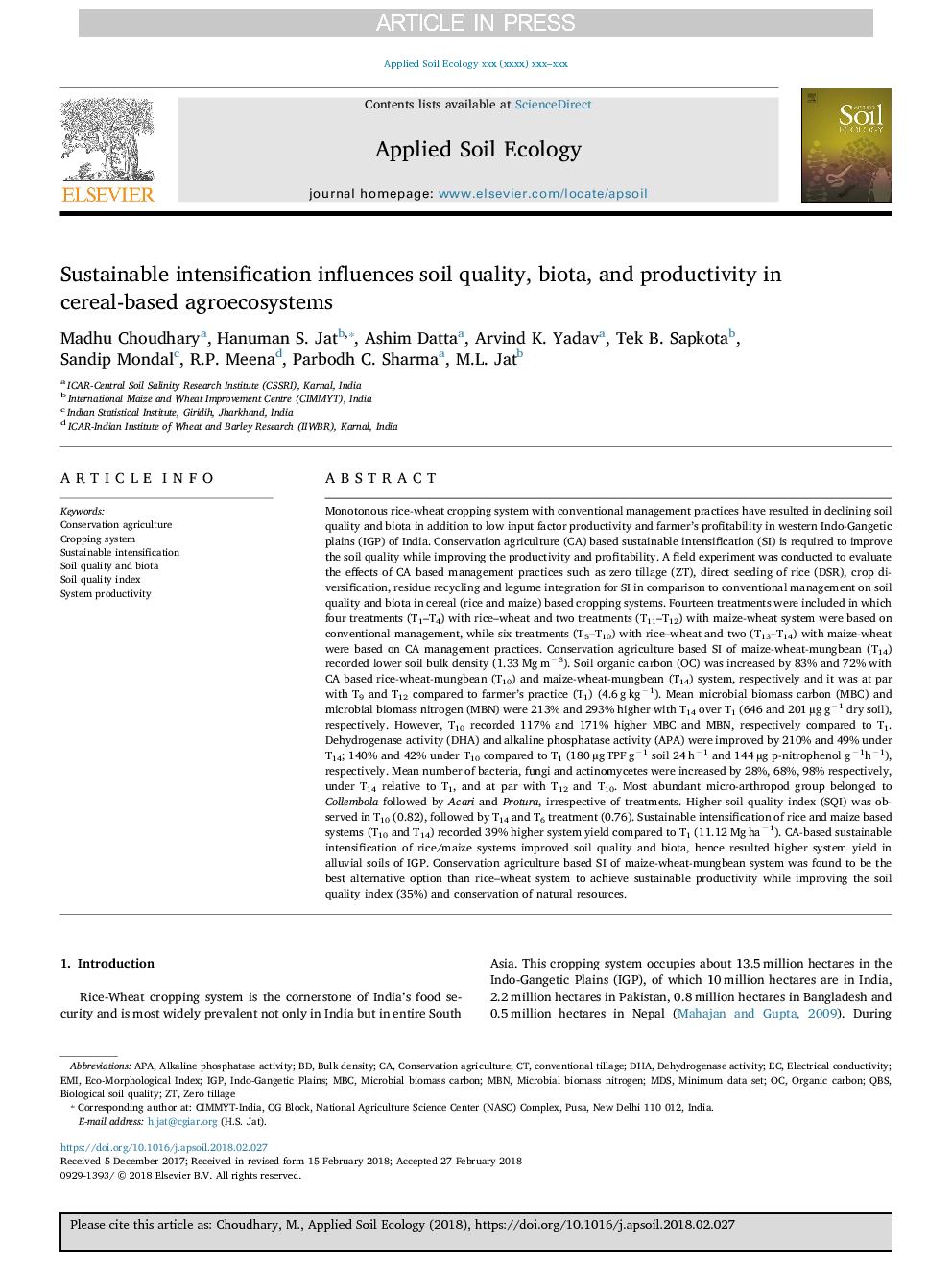ترجمه فارسی عنوان مقاله
تشدید پایدار بر کیفیت خاک، زیستگاه و بهره وری در کشاورزی آروماتیک مبتنی بر غلات تاثیر می گذارد
عنوان انگلیسی
Sustainable intensification influences soil quality, biota, and productivity in cereal-based agroecosystems
| کد مقاله | سال انتشار | تعداد صفحات مقاله انگلیسی |
|---|---|---|
| 94655 | 2018 | 10 صفحه PDF |
منبع

Publisher : Elsevier - Science Direct (الزویر - ساینس دایرکت)
Journal : Applied Soil Ecology, Volume 126, May 2018, Pages 189-198

